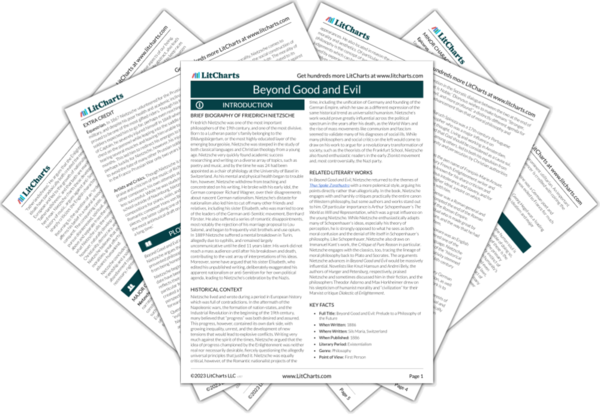The Herd Man Quotes in Beyond Good and Evil
Whoever examines the conscience of the European today will have to pull the same imperative out of a thousand moral folds and hideouts—the imperative of herd timidity: “we want that some day there should be nothing any more to be afraid of!” Some day—throughout Europe, the will and way to this day is now called “progress.”
Let us look more closely: what is the scientific man? To begin with, a type of man that is not noble, with the virtues of a type of man that is not noble, which is to say, a type that does not dominate and is neither authoritative nor self-sufficient: he has industriousness, patient acceptance of his place in rank and file, evenness and moderation in his abilities and needs, an instinct for his equals and for what they need; for example, that bit of independence and green pasture without which there is no quiet work, that claim to honor and recognition (which first of all presupposes literal recognition and recognizability), that sunshine of a good name, that constant attestation of his value and utility which is needed to overcome again and again the internal mistrust which is the sediment in the hearts of all dependent men and herd animals.
Our pity is a higher and more farsighted pity: we see how man makes himself smaller, how you make him smaller—and there are moments when we behold your very pity with indescribable anxiety, when we resist this pity—when we find your seriousness more dangerous than any frivolity. You want, if possible—and there is no more insane “if possible”—to abolish suffering. And we? It really seems that we would rather have it higher and worse than ever. Well-being as you understand it—that is no goal, that seems to us an end, a state that soon makes man ridiculous and contemptible—that makes his destruction desirable.












